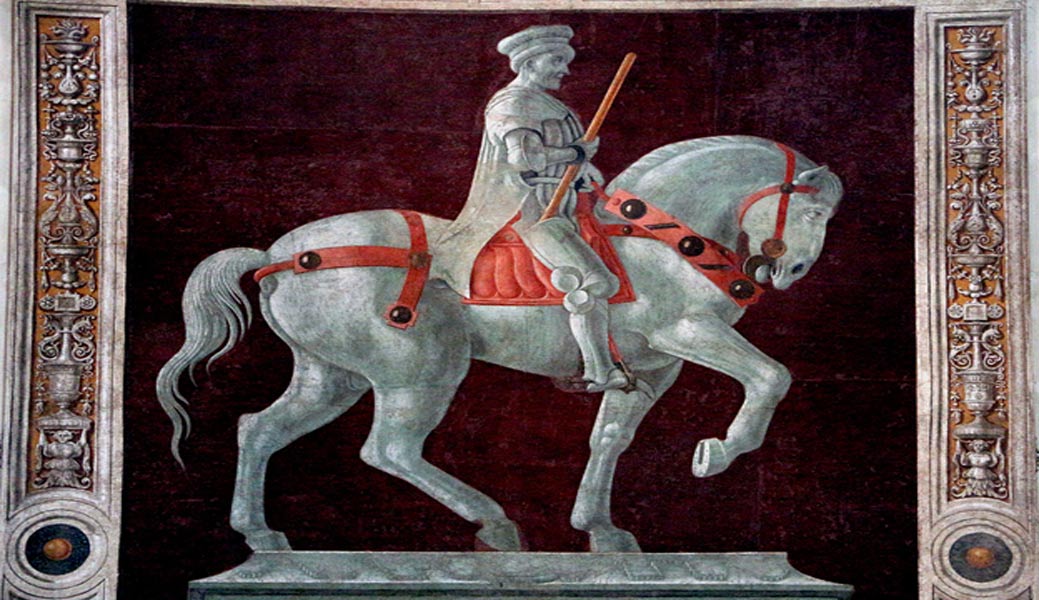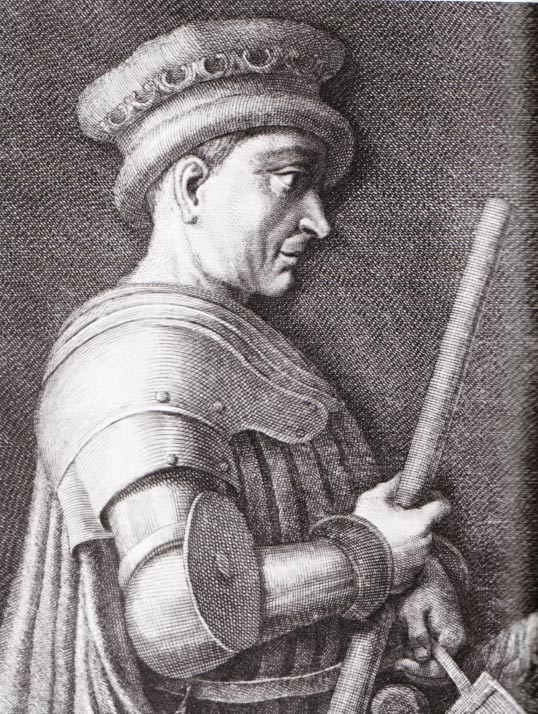
Soldier of Fortune: Glory Days for Sir John Hawkwood, King of Mercenaries
Sir John Hawkwood was born into a life on the English countryside that was business and rebellion. From an early age, he sought power and influence outside of England’s borders. He showed off his battle skills in the Hundred Years War and won a knighthood from England’s king.
Hawkwood the man was indeed an interesting character: a brilliant tactician, and an equally brilliant politician, but in his life he would terrorize Italy with armies and bands of mercenaries, amass a great fortune, and cement his place in history as the most famous Anglo-Italian mercenary.

Engraving representing John Hawkwood. (Public Domain)
Beginnings of Business
Hawkwood was born around 1320, in the parish of Hinckford, Essex, which is located in the north-central region of the county. Essex County was known for its farming and sheep; it had a thriving business sector that produced cloth and exported raw wool. Essex also produced anti-authoritarianism. In 1381, the people revolted against the crown in a large social uprising. The county of Essex in the 14th century was indeed a business class society that did not take well to authority. This attitude harbored by the locals may have influenced the young Hawkwood early on in his life.
John was the youngest child of Gilbert de Hawkwood, but he shared the same name as his older brother. John’s social situation is contrary to what past historians claimed, said to have come from a low ranking family, and was himself a poor soldier later on in his life. This however is not true, for John grew up in a wealthy business family. His father was supposedly a tanner who owned land, and even had a maidservant to take care of the day-to-day chores around the house.
In 1340, John’s father died. The will Gilbert left behind divided the share each child of his received. The elder John got the largest of the share and stayed at home to run the business, while the younger John left home with his share.
Hawkwood The Military Man
The younger John Hawkwood took his share and moved to London. Once Hawkwood made it to London, he worked as a tailor or a tailor in training, an apprentice. However true this story is about Hawkwood working and training to be a tailor remains in dispute. It is also said that tailors during this period were looked down upon in terms of serving in the military. However, it did not stop Hawkwood, for when Edward III began to recruit men for his army (which he planned on taking to France in order to claim the French throne), Hawkwood tossed the needle for the sword and joined the army along with his neighbors back home – one of whom happened to be John de Vere, his lord back in Essex, and wealthy families such as the Listons, Coggeshales and Bourchiers.
- Unravelling the Tragic Story Behind the Impressive Lion Monument of Lucerne
- Subutai: Dog of War - Sophisticated Military Strategist Behind Genghis Khan’s Conquering Empire - Part I
- The Battle of Carrhae: A crushing defeat of the unstoppable Roman juggernaut by the Parthian Empire
John de Vere assembled an army of 40 men-at-arms, 10 knights, 29 esquires and 30 mounted archers to serve Edward III. Wool was provided to the men as pay; a total 56 sacks of wool was to be brought with them. As for Hawkwood’s role in John de Vere’s army, this remains uncertain. However, it is said that he may have started in 1342 as an archer.
Hawkwood and the Hundred Years War
He may have had humble beginnings in the army, but Hawkwood’s ambitious goal was to one day retire to these lands and that goal would start with the battle of Crecy in 1346.




